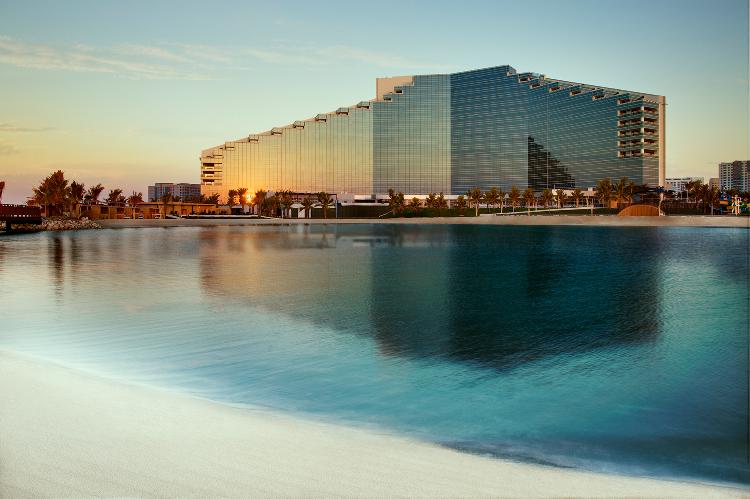
Rotana an-Track to ADD 1,500 Rooms to Under-Served Saudi Hotel Sector by 2017
This is, indeed, a boom time for the travel industry, but it is just a part of a larger trend across MENA of both leisure and business travel that is noticeably increasing demand, especially, on the hotel industry. Particularly in the Arab countries, hotels are working furiously to meet this demand by developing new properties and renovating existing ones. Reports have already been released forecasting an increase in hotel rooms from the current 242,000 to 381,000 by the watershed year of 2020.
Rotana, which already operates a portfolio of more than 100 hotels and resorts in the region, is working hard to meet the rise in demand and the evolving nature of the market through new construction and the incorporation of advanced systems designed to make the guest experience easier, more efficient and still more satisfying.
Although Rotana operates top-rated hotels and resorts in cities such as Abu Dhabi, Dubai, Makkah, Bahrain, Doha, Salalah, Beirut, Amman, Istanbul and Sharm al Sheikh, it is in Saudi Arabia that the chain’s potential for growth is most significant.
“The hotel segment in the Kingdom is the largest in the Arab world,” explained Omer Kaddouri, President & CEO at Rotana. “We looked at the arrival of 88 million visitors to Saudi Arabia for religious tourism, leisure tourism and business activity between now and 2020.”
According to Kaddouri, Rotana expects to increase its share of the market through an expansion of its presence in the Kingdom’s major destinations. By 2017, Rotana will have opened the doors to six new hotels in Riyadh, Jeddah, Al Khobar and Dammam, making an additional 1500 rooms and suites available to visitors. Four of these properties fall under the “Centro by Rotana” brand, a new designation that meets the demands of all kinds of travelers on all types of budgets.
“These new properties are an important part of our plan to expand our presence in the Kingdom,” continued Kaddouri, “but it also comprises another very important goal and that is to increase the percentage of Saudi employees in the hospitality industry. The Saudization goal for hotels in 40%, and our Doroub program aims to train Saudis for the more than 1,000 jobs that our expansion will create.”
Keeping up with a society that is rapidly developing and increasingly embracing e-commerce, Rotana has completely renovated its online portal to accommodate the demands of a younger, more tech-savvy generation and casual and business travelers that has become accustomed to booking hotels, rental cars and other travel services online. Today, guests can book any Rotana hotel or resort with 4 clicks at rotana.com. Available in five languages, including Arabic and English, the website offers direct contact with Rotana without involving commission-charging third parties.
“We have big ambitions,” concluded Kaddouri, “and we are seizing the current opportunity to expand and meet the challenges of a growing market with the goal of further becoming a leading play in hospitality not only in the Middle East and Africa but in South Asia and Eastern Europe, as well.”



























